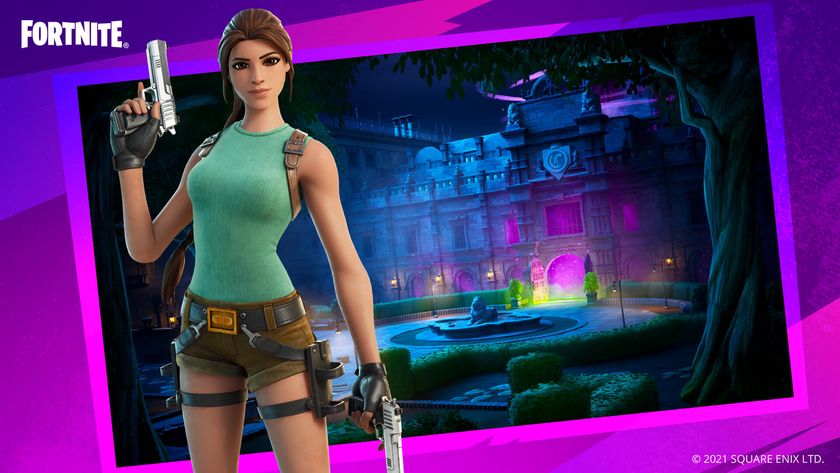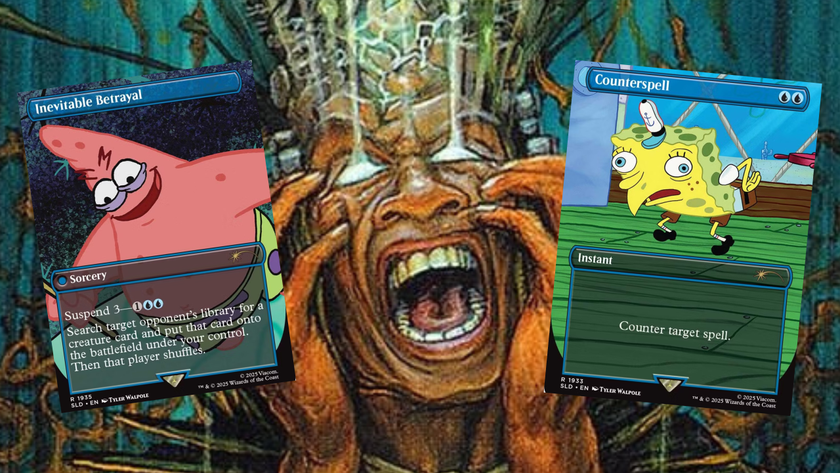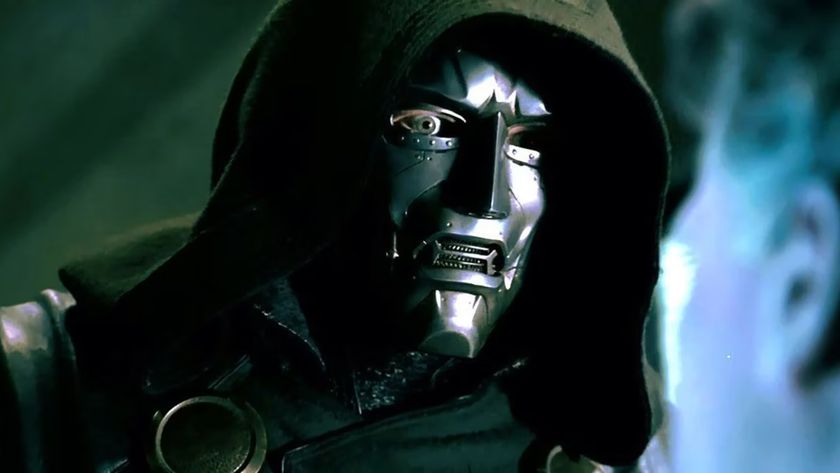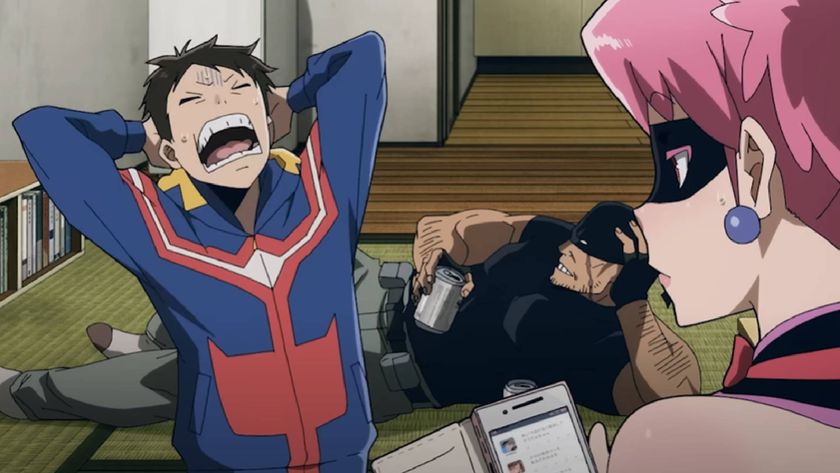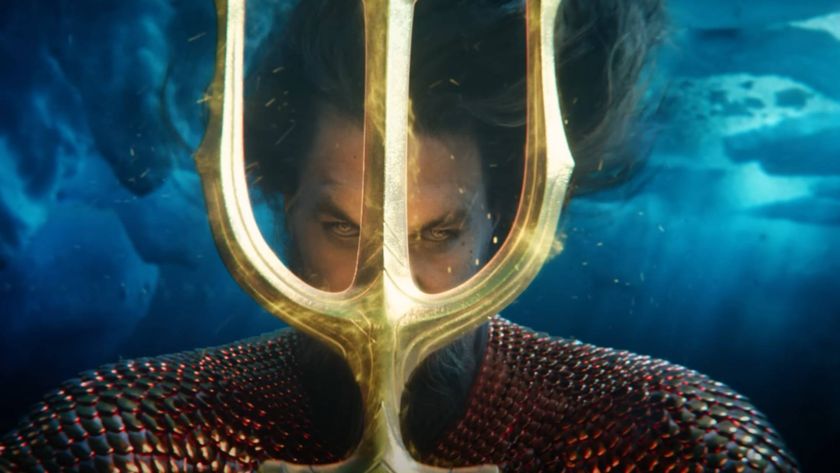How Resident Evil 7 can save a series in crisis

Time for a resurrection
Resident Evil is a series in crisis. Since crafting the tense blueprint for survival-horror in the late-90s, sequel-escalation has led it far from its roots, to a place bereft of identity. Through its confused attempts to reconcile action and horror, the franchise has lately failed to effectively deliver either: most egregiously in the ambitious, colossal, expensive, but ultimately messy misfire of Resident Evil 6. With Resi 7 now rumoured for an E3 reveal, the series is at a crossroads. Continuing in its current direction--whatever that is--surely cannot work. So what should it do?
Well, while the progenitor of undead horror has lost its way during the transition to the modern gaming landscape, it essence lives on elsewhere. Plenty of other big, contemporary games have picked up its baton in multiple different areas, and excelled. Looking at these disparate relatives--from The Last of Us to Dark Souls, and even Journey--I reckon a whole lot of their triumphs can be applied back to Resi, reinvigorating the series original spirit and reworking it into unique, better-than-ever form. Click on, and Ill explain exactly what Capcom needs to do.

Wipe away the narrative so far
This is fundamental to everything else. The improvements that Resident Evil needs at this stage simply cannot be served by the series' current story. The Resident Evil narrative has long-since hit the point of escalation freefall, with each game trying to one-up the last, leading to the ludicrous excesses of Resident Evil 6's bloated, globe-trotting, five-protagonist, apocalyptic 'epic'. And something like that is about as far from an effective horror scenario as you'll ever get.
Think about the best horror games, films, and stories. Hell, think about the best Resident Evils. They're all focused tales with very specific atmosphere, pacing, and intent, built around the persistent experience of a relatable character acting as an avatar for the audience's fears. Resident Evil's scenario lost track of that after RE4, taking the wrong path to entirely the wrong set of disparate locations. Moreover, its characters have changed beyond all recognition in order to serve those mistakes, making the continuation of their story as fruitless as it is contrived and convoluted. Sweeping it all away is the only route back to an effective horror experience.

Use a fresh, player-created character
So we've established that Jill, Chris, Leon, and the rest of Capcom's Avengers of pantomime horror are gone, so who should we play instead? Simple. We play anyone. Though I mean that with a capital 'A'.
If we're going to get back to affecting survival-horror, our character categorically cannot be a jet-setting, highly trained, monster-slaying SWAT superman. That's a given in terms of relatability. It's also vitally important to the kind of scenario this game needs, but more on that a little later. Second, if we're really going to escape the vacuous, action-movie pomp of the current series and get back to tense, under-the-skin horror, the player really needs to take ownership of their character, inhabiting and really understanding them. That in mind, we need an everyman or woman of the player's own design. An average Joe or Jane caught in the middle of a horrific situation, with no training and no special knowledge. It would be a massive departure for the series, but also be a great way to quickly attach players to the new set-up. And that leads us smoothly into the biggest change: The scenario.
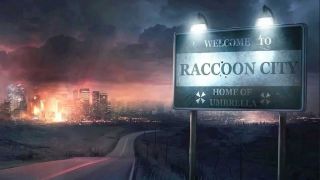
Keep it to a confined setting
Another important rule of good horror that Resident Evil has forgotten: Consistency is king. While it's important for threats--however abstract, surreal, or mysterious--to operate under consistent internal rules in order to be convincing, a consistent setting creates a believable experience that feeds directly back into empathy and real fear.
Resident Evil 7 needs to keep to one, unbroken, localised setting. No passport required. In fact no scene transitions that can't happen on foot, in real-time. We need to be with our character every step of the way, experiencing everything they experience and instilling it with our own emotional responses in an unbroken, one-to-one fashion from beginning to end. That's really important, because the horror is going to be about more than the monsters.
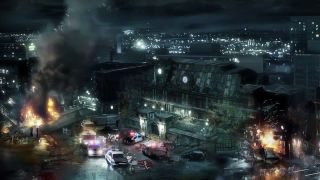
Keep the narrative at 'street level'
Monsters are scary, but you know what's even scarier? The unknown. Thats what all horror is fundamentally about. Encountering an unrelatable threat that doesn't operate by the normal rules; which could and might be anything, and against which one has no convenient, prescribed response. With Resis current plot though, we know too much. The lid has been blown on Umbrella, and Raccoon, and the zombies, and the Ganados. For me, the horror was over the second the games stopped talking about 'monsters' and instead made 'bioweapons' an officially recognised tool of global terrorism.
So let's drop all that. Let's make this story one of confused, uninformed, terrifying street-level survival. No voice of authority, no military assistance, no clear way out, no clue as to what is even going on. Sound extreme? Not really. That sort of setup informed the majority of the series' best entries, up to and including part four. Let's get back to that, but scale up the confusion, stripping away any assumed knowledge by way of a new, entirely unknown threat in a new, unknown world.
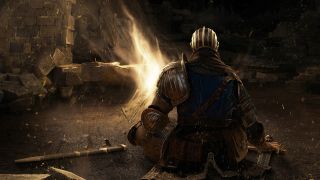
Keep the world ambiguous
Here's where it all comes together. The antidote to Resis progressive loss of mystery is... to make mystery a fundamental building material of its world. First we throw an everyman character into a terrifying world about which they know no more than they player. After that, the game needs to maintain the fear by way of intrigue and ambiguity.
If you've played Dark Souls or The Walking Dead, you'll know exactly the sort of obtuse, ambient storytelling I'm talking about. No overt explanations. No exposition dumps. Just a world of unknown dangers, and characters who only know the small part of the bigger picture that they've seen first-hand. Everything else is to be discovered, deciphered, or interpreted. The player-characters home town is suddenly thrown into horrific calamity, like at the start of The Last of Us. Or the horror begins in a slow, creeping fashion, like in Shaun of the Dead. Immediately afterwards, communication with the outside world goes down, and help never arrives. Then it's simply a fight to deal with whatever the world throws up at you on a moment-to-moment basis, with no obvious answers or solutions in sight. Maybe ever. How does the player save the day? Simple: They don't.
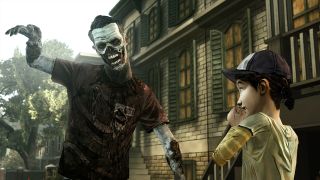
Make it a story of surviving, not winning
This game should not be about getting to the bottom of the problem and dealing with it as an empowered, one-man army. It should be about surviving the horror, not overcoming it. The ambiguous plot should (like that of The Last of Us) consist of a series of desperate, half-guessed objectives based not on an obvious, pro-active plan of attack, but an ever-changing series of probable best-bets for staying alive and/or escaping. Naughty Dogs masterpiece proved that this sort of improvisational, almost random plotting can make a disaster story all the more compelling and relatable, even in a linear game. Resident Evil could really revel in it.
Leave the bigger picture and the state of the wider world til later games. Theres plenty of time to explore that stuff if needs be. In order to return to a meaningful, character-driven horror experience, the new Resident Evil needs to focus solely on those characters and their experience, moment to moment. Forget the grand conspiracy theories, and stick with the real, human plight. Thats what matters in any horror fiction.
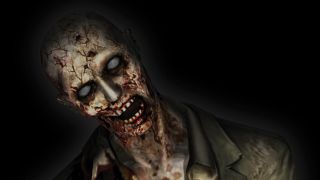
Have fewer enemies, but lethal consequences
You see theres a fundamental problem with zombies in modern games. If the player is armed, then slow and stupid zombies need to appear in overwhelming numbers in order to be a threat. That immediately scales up the action and turns our hypothetical RE7 back into exactly the high-octane splatter-fest that were trying to get away from. Realistically, in a AAA game, were not going to be able to get away from the weapons. So how do we maintain intimate, personal horror while avoiding a descent into explosive spectacle?
We take another leaf from Dark Souls blood-spattered tome and just make every enemy a very serious threat. In DS, no matter how high you level, even the most basic grunts can take you down in seconds if you dont approach them with absolute tactical care and utmost respect for your surroundings. Between their high damage output and meticulously vicious group interactions, just two to three enemies can be lethal to the unwary. Lets apply that model, and make survival horror about real survival; the honed, hard-learned instincts that hinge victory not on your weapon, but the methods by which you understand how to use it.
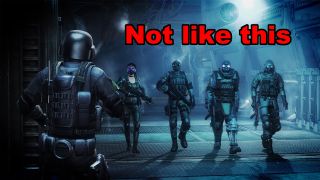
Make multiplayer work for the horror, not against it
The next Resident Evil will have online multiplayer. Thats a given. But theres a problem with that. Co-op kills horror stone dead. You can tackle the most nightmarish situation imaginable, but stick a buddy in your ear and all fear evaporates immediately. But I reckon there is a way to make co-op add to the terror. And, perhaps ironically, the inspiration comes from the majestic spectacle of Journey.
Hows about you meet other, dynamically spawned players across the course of the game? You dont know who these people are, cant arrange to meet them, and cant communicate with them other than through gameplay. Occasionally, you just run into them at random when youre in the same area of the game. You can forge ahead together for a little while, but the game fights back to compensate for your combined strength. And forget chest-punching revivals. When a player dies, they die. Your journey together ends forever. As they become just another victim of the catastrophe, fallen among the bodies of so many gutted NPCs, your brief time together adds extra poignancy to the overall horror.
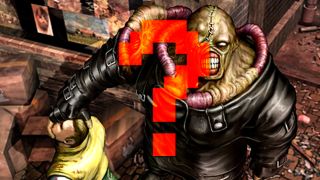
Any of that grab you?
So there's my plan for fixing Resident Evil. But what do you think? Like it? Have anything to add? Or do you think that Resi is doing just fine, thankyouverymuch, and fear a return to the days when supernatural horrors demanded more than a punch in the face from a man with biceps bigger than his head? Let me know.
And while you're here, check out some of our related scribblings. For some of my wider ramblings on fixing the horror genre, have a read of 7 Ways Next-gen Can Rebuild Horror Gaming. And if you fancy reading up on a promising off-shoot from Resident Evil's gene pool, have a look at Why The Evil Within May Be The Real Successor To Resident Evil 4.

